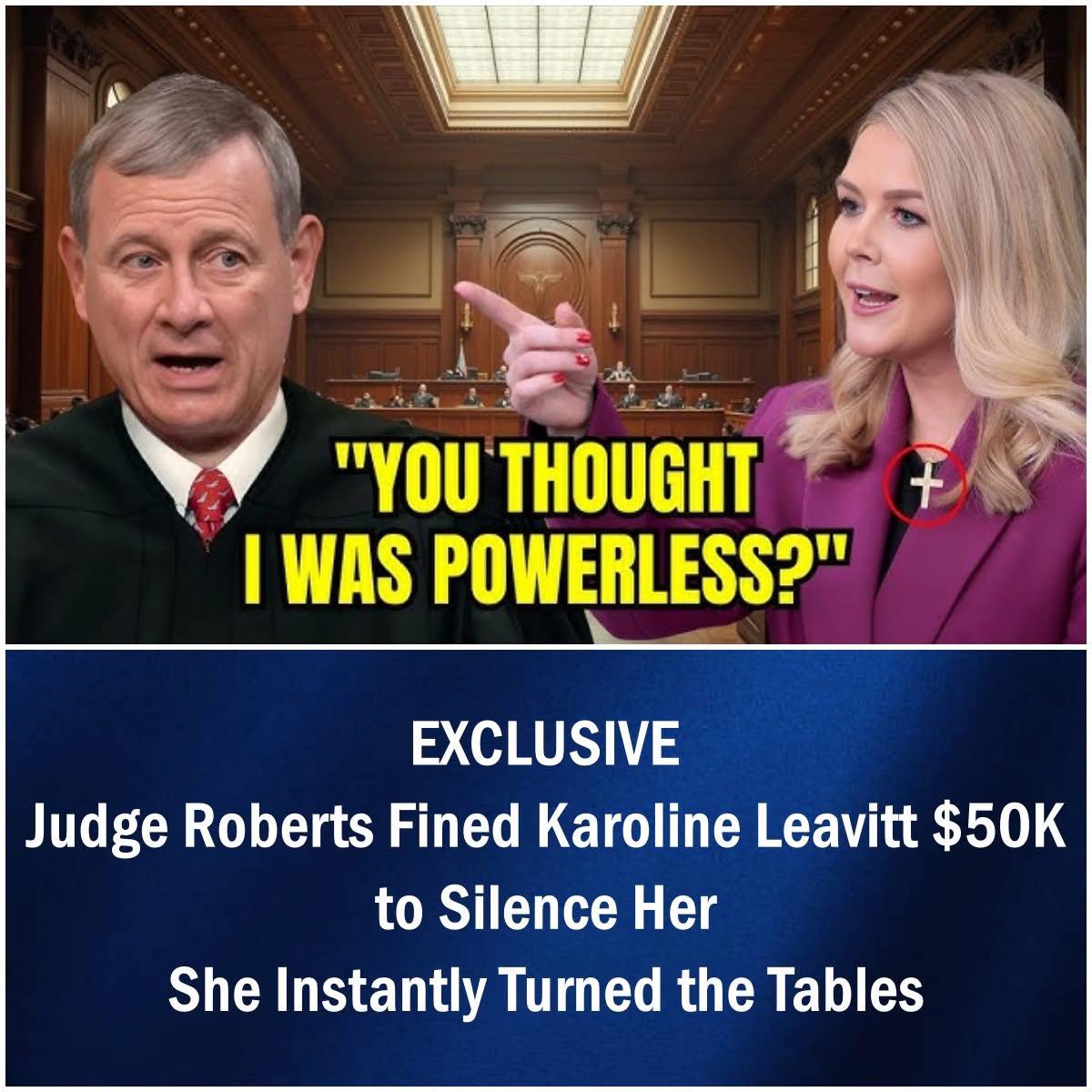A biting winter wind blew through Washington, D.C., but inside the federal courthouse, the atmosphere felt even colder. What was supposed to be a routine hearing had attracted an unexpected crowd—reporters, staffers, and legal observers—all sensing that something more than routine bureaucracy was unfolding.
A spokesperson for a well-known public figure entered with calm composure, immediately feeling the weight of the room. At the bench sat the chief justice, his expression unreadable. Without any introduction or explanation, he delivered a shocking pronouncement: “The defendant has violated the Federal Communications Act. A fine of $50,000 is imposed.”
No testimony. No evidence. Just a verdict dropped into an uncomfortable silence.
The spokesperson stood. “Your honor, we haven’t even begun. I request a chance to present my defense.”
The judge interrupted coldly. “There’s nothing to discuss.”
But she refused to back down. “Every injustice deserves a witness.”
Her words rang out in the chamber. A brief recess followed, and when the session resumed, a second judge—renowned for his fairness—had replaced the first.
“Proceed,” he said.
She presented her case, referencing legal precedents, questioning the absence of any documentation, and asserting the fundamental right to be heard before judgment. When the government’s investigator admitted there was no concrete evidence, a murmur ran through the courtroom. She spoke not only for herself but for others—those who had been silenced without reason, fined without a defense.
“This system should not punish in the dark,” she declared. “It must serve the people, not suppress them.”
The chief justice hesitated, clearly unsettled. Then the new judge spoke: “Insufficient evidence. The charge is dismissed.”
The spokesperson didn’t celebrate. She remained resolute, standing as a symbol of resistance against unchecked authority.
News of her defense spread rapidly. Legal experts weighed in. Policymakers took note. Grassroots organizations saw her as a catalyst for broader reform. Her actions became more than just a courtroom drama—it turned into a rallying cry for truth, fairness, and accountability based on evidence, not assumptions.
As she exited the courthouse, her steps echoed with the quiet strength of someone who hadn’t just won a case—she had ignited something much bigger.
The battle wasn’t over, but one thing was clear: justice begins with the courage to speak when others remain silent.
